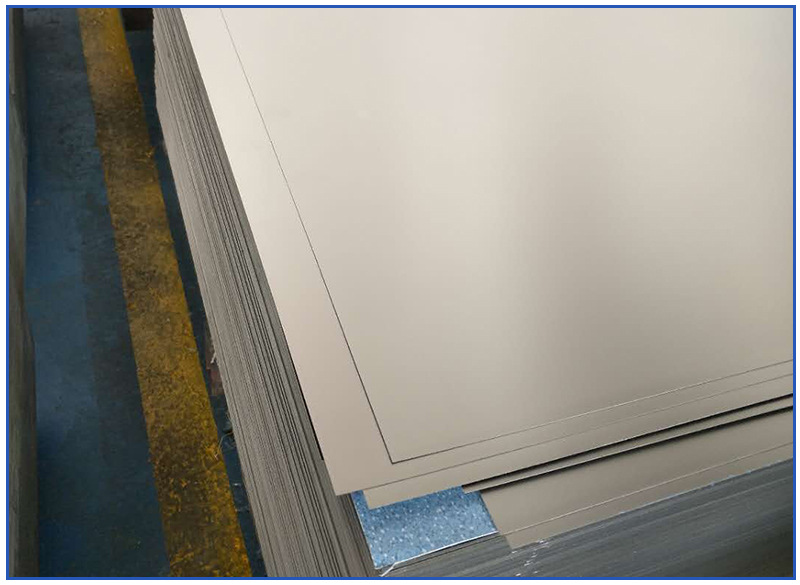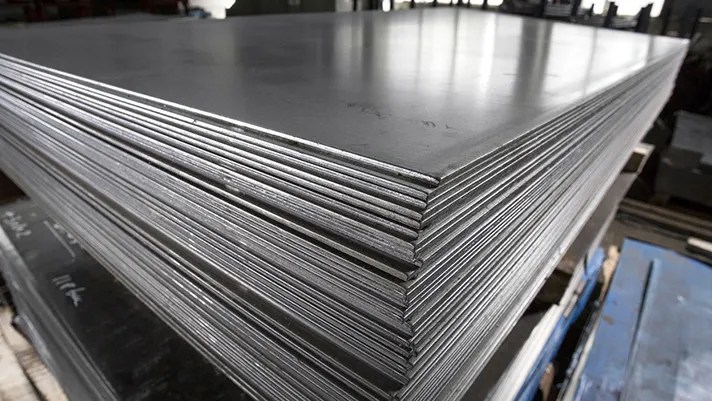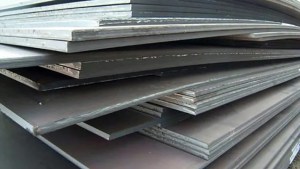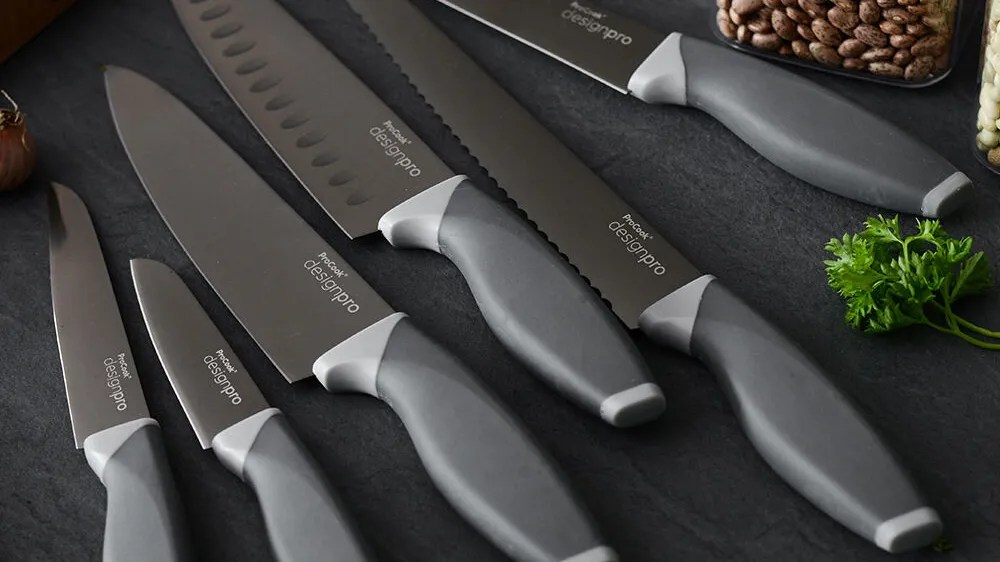Introduction
Titanium plate and sheet materials are known for their exceptional strength, light weight, and resistance to corrosion, making them highly valuable in various industries. In this article, we will explore the benefits, applications, and industries that extensively use titanium plates and sheets, highlighting why they are considered an ideal choice for demanding environments.
What Are Titanium Plate and Sheet?
Titanium plates and sheets are flat rolled products of titanium, available in a range of thicknesses and sizes. They are made from high-grade titanium and are used across different industries due to their unique combination of properties.
Titanium sheets are typically thinner and more flexible, whereas titanium plates are thicker and more rigid. Both forms serve specific purposes in industries like aerospace, medical, chemical processing, and more, depending on the structural requirements.

Key Benefits of Titanium Plate and Sheet
1. Exceptional Strength-to-Weight Ratio
Titanium is well known for its impressive strength-to-weight ratio. This means that while titanium plates and sheets are incredibly strong, they remain lightweight compared to other metals. This property makes them ideal for industries that require both strength and reduced weight, such as aerospace and automotive manufacturing.
2. Corrosion Resistance
Titanium has excellent resistance to corrosion, even in harsh environments, including exposure to seawater, chemicals, and extreme temperatures. This makes titanium plates and sheets particularly suitable for applications in marine, chemical, and oil and gas industries, where corrosion can be a significant issue.
3. Biocompatibility
Titanium is biocompatible, meaning it is non-toxic and does not react with bodily fluids. This property makes titanium sheets and plates ideal for medical and dental applications, including implants, surgical tools, and medical equipment, where materials must be safe for use in the human body.
4. High Heat Resistance
Titanium has a high melting point and can withstand extreme temperatures without deforming or losing its strength. This makes titanium plates and sheets an excellent choice for high-temperature applications, such as those found in the aerospace and chemical industries.
Applications of Titanium Plate and Sheet
1. Aerospace Industry
Titanium plates and sheets are extensively used in the aerospace industry due to their strength, light weight, and resistance to high temperatures. They are used in the construction of aircraft structures, engine components, and other critical parts that require high performance and reliability.
2. Medical and Dental Applications
In the medical field, titanium’s biocompatibility makes it an ideal material for implants, such as hip and knee replacements, as well as for surgical instruments and dental implants. Titanium sheets are also used in the production of medical devices that need to be lightweight and safe for use in the human body.
3. Chemical Processing
The chemical industry benefits from titanium’s resistance to corrosion. Titanium plates and sheets are used to manufacture equipment such as heat exchangers, reactors, and storage tanks that must withstand aggressive chemicals and extreme conditions without deteriorating.
4. Marine Industry
Titanium’s resistance to corrosion, especially in saltwater environments, makes it a popular choice in the marine industry. Titanium plates and sheets are used to create components for ships, submarines, and offshore structures where materials are frequently exposed to seawater.
5. Automotive Industry
In the automotive sector, titanium sheets and plates are used in high-performance and luxury vehicles where reducing weight without compromising strength is critical. Titanium helps improve fuel efficiency and performance, especially in sports cars and electric vehicles.





Titanium Plate vs. Titanium Sheet
1. Thickness and Structural Differences
The primary difference between titanium plates and sheets is their thickness. Titanium sheets are thinner and are often used in applications where flexibility and shaping are required. Titanium plates, being thicker, are used in applications where structural strength is necessary.
2. Specific Use Cases
Titanium sheets are commonly used for medical devices, heat exchangers, and lightweight automotive parts. Titanium plates, on the other hand, are utilized in aerospace structures, heavy-duty marine components, and applications that require enhanced structural support.
Who Should Choose Titanium Plates and Sheets?
Titanium plates and sheets are ideal for manufacturers, industries, and professionals who require materials that can withstand demanding environments. Companies in aerospace, medical, marine, chemical processing, and automotive sectors will find titanium’s unique properties valuable for improving the quality, safety, and performance of their products.
FAQ Section
- What Is the Difference Between Titanium Plate and Sheet?
Titanium plates are thicker and more rigid, while titanium sheets are thinner and more flexible, each suited for different applications based on strength and flexibility needs. - Why Is Titanium Preferred in the Aerospace Industry?
Titanium’s high strength, light weight, and resistance to heat make it ideal for constructing aircraft parts that require durability and reduced weight. - Is Titanium Safe for Medical Use?
Yes, titanium is biocompatible, making it safe for use in medical implants, surgical instruments, and other medical devices. - What Are the Corrosion Resistance Properties of Titanium?
Titanium is highly resistant to corrosion, even when exposed to harsh chemicals, seawater, and extreme temperatures, making it ideal for challenging environments. - Can Titanium Plates Be Used in Marine Applications?
Yes, titanium plates are well-suited for marine applications due to their excellent resistance to corrosion in saltwater environments. - How Does Titanium Improve Automotive Performance?
Titanium’s light weight and strength help improve vehicle performance and fuel efficiency, especially in high-performance and electric vehicles. - What Makes Titanium Heat Resistant?
Titanium has a high melting point and can withstand extreme temperatures, making it suitable for high-temperature applications in industries like aerospace and chemical processing. - Are Titanium Sheets Easy to Form and Shape?
Yes, titanium sheets are flexible and can be easily formed and shaped, making them ideal for applications that require lightweight and flexible components. - What Industries Benefit Most from Titanium Plates and Sheets?
Industries such as aerospace, medical, marine, chemical processing, and automotive benefit greatly from titanium’s unique properties. - How Do Titanium Plates and Sheets Compare to Other Metals?
Titanium offers a superior strength-to-weight ratio, excellent corrosion resistance, and high heat resistance compared to other commonly used metals like steel and aluminum.
Conclusion
Titanium plates and sheets are versatile materials that offer numerous benefits, including high strength, light weight, corrosion resistance, and biocompatibility. Their wide range of applications in industries such as aerospace, medical, marine, and chemical processing demonstrates their value as a reliable solution for demanding environments. Choosing titanium plates and sheets can significantly enhance the quality and performance of products in these industries.





